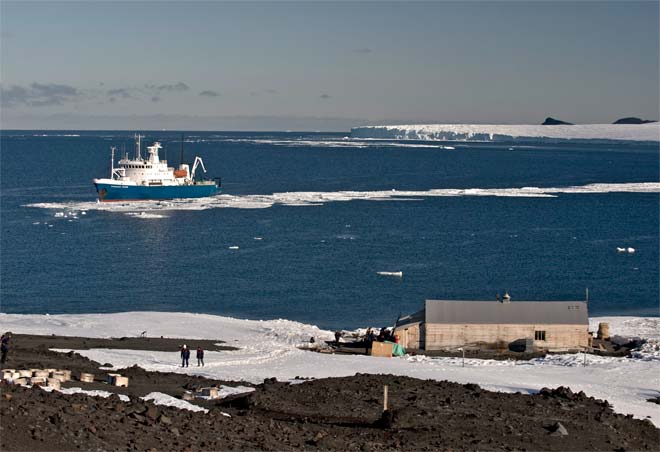
Tourists, travelling by air and sea, began visiting Antarctica in the 1950s. Numbers were at first very small. However, despite the inaccessibility and expense of travelling to Antarctica, many people have wanted to do so. By the 2000s tourists far outnumbered scientists, with over 45,000 visiting during some summer seasons. Tourist ventures operating in the Ross Sea are based in Lyttelton and Bluff in New Zealand or Hobart in Australia. But the Ross Sea area was visited by relatively few tourists – many more visit the Antarctic Peninsula, which is slightly warmer and has more abundant animal life.
Recreational visitors, travelling in some of the most dangerous waters in the world, magnify existing issues around safety, disposal of waste and the possibility of polluting an almost pristine environment. There have been accidents and oil spills. The New Zealand response, based on the environmental protocol to the Antarctic Treaty and managed by the Ministry of Foreign Affairs and Trade, included a requirement that travel companies prepare an environmental assessment before undertaking any expedition.
Te whakamahi i tēnei tūemi
Heritage Expeditions New Zealand
Photograph by Kevin Tyree
This item has been provided for private study purposes (such as school projects, family and local history research) and any published reproduction (print or electronic) may infringe copyright law. It is the responsibility of the user of any material to obtain clearance from the copyright holder.









Tāpiritia te tākupu hou